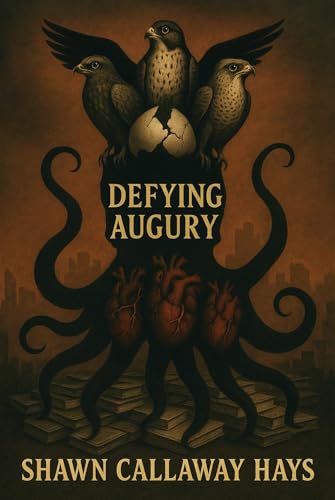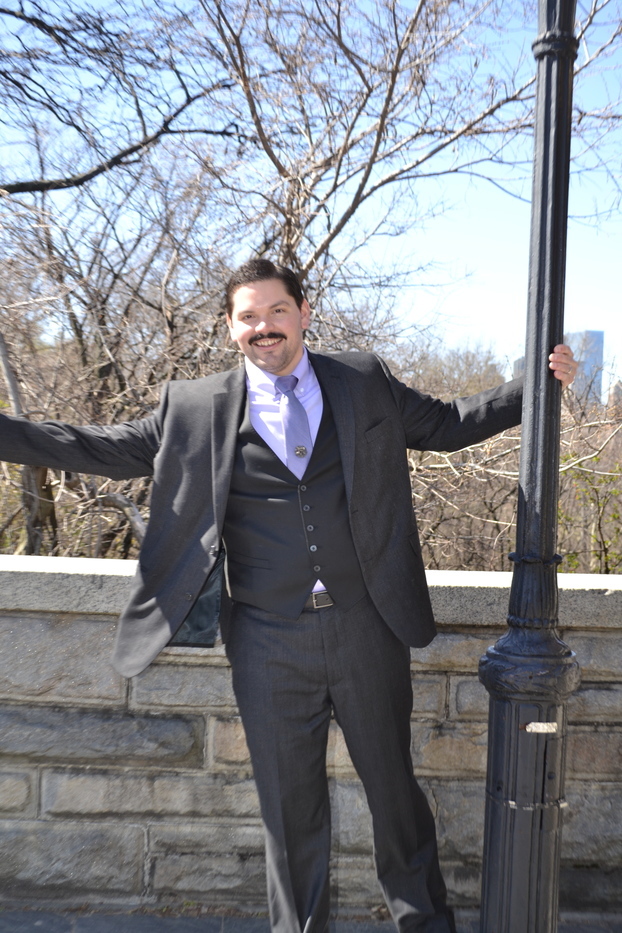
International Gold Winner of the Readers’ Choice Book Awards (What Light Was), novelist Shawn Callaway Hays delivers Defying Augury, My Center Cannot Hold. Before the final action in Shakespeare’s best play, Hamlet announces—in the clarity of his state of grace moment—“We defy augury.” Ready to duel to the death, Hamlet’s interior quarrels are concluded, fully ready to take committed action in the external world of mysterious providence. In this spiritually charged and psychologically daring epic, Shawn Callaway Hays reimagines himself as the battleground of three warring selves—each one cast in the mold of Dostoyevsky’s Karamazov Ivan the skeptic, Dmitri the sensualist, and Alyosha the saint. In over 160 cantos, Defying Augury, My Center Cannot Hold becomes both a mythic poem and a metaphysical reckoning—where the poet’s soul is split, tried, and reassembled through fire, falcons, prophecy, and memory. With a structure reminiscent of ancient scripture and a voice that swings between the defiant, the mystical, and the elegiac, Hays turns his inner conflict into a sacred drama that is as lyrical as it is philosophical. From the wilderness of subconscious sea-beasts and sibling betrayals to the strange annunciations of inner prophets, this epic becomes both a fractured autobiography and a cosmic drama. Shawn’s internal voices—warring, merging, metamorphosing—chart a course through exile and eruption, through Eastern mysticism, Western theology, and poetic resistance. The result is an odyssey that is as metaphysical as it is emotional, a kind of American Mahābhārata fused with the tragic irony of modern faith and doubt. What begins as a soul’s quest for coherence transforms into an odyssey of inner resurrection. Hays conjures a cosmos of courtroom visions, falcon-born archetypes, sea leviathans, and monastery dirt kissed by trembling saints. His language—poetic, radiant, often operatic—becomes a vessel for a triune spiritual autobiography, where the psyche is carved into competing yet interdependent brothers. With biblical cadence and ecstatic intensity, the poet’s fragmented identities merge toward redemption, one Canto at a time. This is no linear salvation narrative. Doubt and rage return in tidal waves, challenging the saint within. Alyosha rises only to be pierced again by the chaos of Ivan and the passion of Dmitri. Yet from the ashes of their struggle emerges something fiercely a poetic theology of inner division, suffering, and hope. Through storm and stillness, through inner crucifixions and unexpected resurrections, Hays wrestles not just with God or fate, but with the deeply human how does one live when the center does not hold? Hays weaves philosophical inquiry, spiritual autobiography, and literary homage into one long song of becoming. Each canto hums with the tension between annihilation and grace. The poem itself acts as a falconer, calling its wild voices home. It does not resolve its contradictions but exalts them—knowing that truth often emerges through fracture. In the end, it is love—not certainty—that resurrects the center. This is Leaves of Grass rewritten as spiritual disunion and resurrection. This is Paradise Lost retold as psychological self-portrait. This is The Brothers Karamazov transformed into prophetic punk opera. Hays names himself not just as poet, but as the scene of epic trial. And through that trial, the poet emerges not as a conqueror, but as an open wound transfigured into light.
